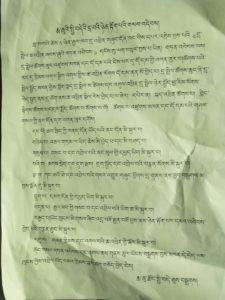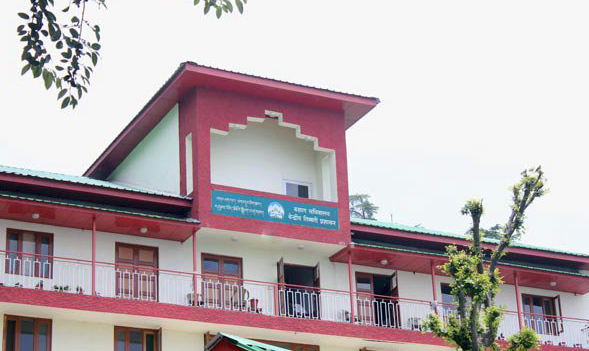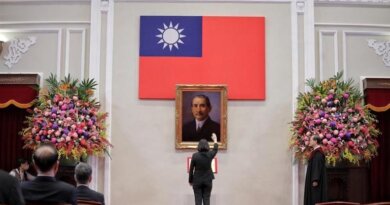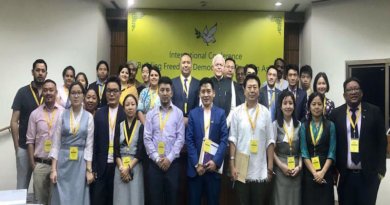China issues vague and overbroad rules on internet censorship in Tibet
TCHRD | November 17, 2017
DHARAMSALA – The Tibetan Centre for Human Rights and Democracy (TCHRD) has obtained a copy of a Chinese government document that announces the implementation of vague and broadly defined rules on internet censorship in Tibet.
Issued for public notice by the Machu (Ch: Maqu) County Public Security Bureau (PSB) located in Kanlho (Ch: Gannan) Tibetan Autonomous Prefecture, Gansu Province, the document in Tibetan contains a list of instructions to online chat group administrators and owners of public online accounts on how to conduct self-censorship.
The notice, that took effect on 8 October, contains rules that are local version of two new regulations released on 7 September by the Cyberspace Administration of China (CAC). Both the “Management Regulations on Online Public Accounts” and “Management Regulations on Internet Groups” provide that the regulations were passed to “promote the healthy and orderly development of online community” and “uphold the socialist core values.”
To be implemented by the Machu County Internet Police, the notice orders all online chat group administrators and owners of public online accounts to be responsible for “strictly regulating” their group members and the information they post. They are also made responsible for strictly preventing the spread of ‘illegal’ contents on the internet. The notice covers all online groups such as those that provide information including text, picture, audio and video to the public through any registered online platform as well as online chat groups, social media, and instant messaging apps.
All online group administrators and owners of public online accounts are required to follow nine instructions listed in the notice. Apart from the usual instructions on banning the spread of information containing ‘rumours’, ‘pornography’ and ‘violence’, there are some that make specific references to ‘state secrets’, ‘internal confidential documents’, and ‘Hong Kong, Macau and Taiwan’. Another bars users from sharing ‘fake videos’ of Chinese police brutality. Typical of all Chinese legal documents, the notice also contains the last catch-all phrase: “Do not share other illegal information.” The notice ends with a warning that those “who share information by violating the regulation will be dealt with by the relevant departments in accordance with relevant laws and regulations.”
 Below is a translation of the nine rules listed in the notice:
Below is a translation of the nine rules listed in the notice:
Do not share information containing political contents
- Do not believe in rumours and do not tell them
- Do not share internal documents containing confidential information
- Do not share information containing pornography, drug use, and violence, etc.
- Do not share information related to Hong Kong, Macau and Taiwan before it is released on government websites
- Do not share military related information
- Do not share documents containing state secrets
- Do not share fake videos that sully the image of police
- Do not share other illegal information
The censorship rules issued in Machu County add to a host of other restrictive regulations passed by the Chinese authorities this year to implement the Cyber Security Law that took effect in June. The notice issued in Machu County is notable for several reasons. Tibetan activists and government critics are routinely convicted of “leaking state secrets” or “endangering state security” for allegedly sharing information that contains “illegal political contents”. Both charges are vaguely defined in Chinese Law allowing the law enforcement agencies to criminalise human rights and peaceful dissent. The reference to ‘fake videos’ of Chinese police brutality is also noteworthy given that in the past Chinese authorities had banned videos of Chinese police subjecting handcuffed Tibetan protesters to severe beatings and torture that sparked international outcry and exposed inhumane torture methods employed in Chinese police custody.
In October, Chinese state media reported on a workshop organised by the County PSB to educate online chat group administrators about the new internet regulations in Tsekhog (Ch: Zeku) County in Malho (Ch: Huangnan) Tibetan Autonomous Prefecture, Qinghai Province. The PSB officers who led the workshop explained to 248 online group administrators on the reasons why “many online groups administrators were arrested in the past” and gave specific instructions on preventing illegal contents online.
In Tibet, blogs, instant messaging services, discussion forums, and other internet platforms have long been monitored and censored. More social media contents are blocked in Tibet than any other place in the PRC. Therefore, any new law or regulation only reinforces the existing restrictions. One of the most popular social media apps in China is WeChat. WeChat is the most widely used social media apps by a large number of Tibetans in Tibet. TCHRD’s 2016 Annual Report found that self-censorship among Tibetans had increased and the new regulations will further restrict their freedom of expression and right to privacy.
Earlier this week, a report released by Freedom House on online freedom worldwide found that for the third consecutive year, China was the world’s worst violator of internet freedom, followed by Syria and Ethiopia. The report also found that half of all internet shutdowns in the reporting year were specific to mobile connectivity, with most mobile shutdowns occurring in Tibet and Oromo areas in Ethiopia.




